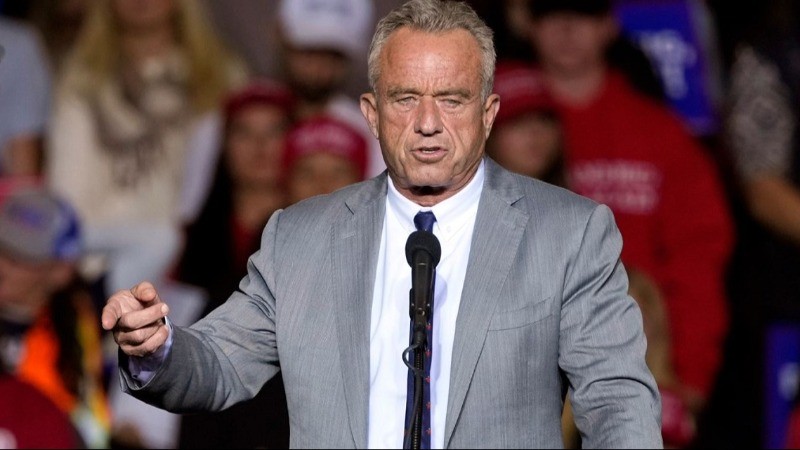
A recent poll revealed that 44% of U.S. voters support the nomination of Robert F. Kennedy Jr. for Secretary of Health and Human Services. However, public opinion consistently shows strong support for childhood vaccination, with 88% of Americans agreeing that the benefits of the measles-mumps-rubella (MMR) vaccine outweigh its risks. This is the same vaccine Kennedy discouraged Samoans from using during a deadly measles outbreak in 2019.
The gap between these statistics highlights that many Americans may be unaware of Kennedy’s opposition to all approved vaccines or the significant influence the HHS Secretary holds over vaccine policy. This underscores the need for journalists to educate the public about how vaccines are approved and recommended, as well as the critical role the HHS Secretary plays in shaping vaccine policy and ensuring their availability in the U.S.
Over 75 Nobel Prize winners have issued an open letter urging the Senate to reject Robert F. Kennedy Jr.'s nomination for Secretary of Health and Human Services (HHS). The scientists raised concerns about Kennedy's history of promoting conspiracy theories and his hostile stance toward mainstream science and medicine.
The laureates warned that confirming Kennedy, a vaccine skeptic and vocal critic of public health policies, would jeopardize public health and undermine America’s leadership in health sciences. "Placing Mr. Kennedy in charge of HHS would put the public's health in jeopardy," the letter said, highlighting Kennedy's lack of credentials in medicine, science, and administration.
Kennedy has previously called for vaccine scientists to be jailed and promoted unfounded claims linking vaccines to autism, HIV, and other diseases. He has also opposed widely accepted public health measures, such as vaccination programs and water fluoridation, without providing scientific evidence.
Richard Roberts, a 1993 Nobel laureate who co-drafted the letter, said the group typically avoids political involvement but felt compelled to act in this instance. "These political attacks on science are very damaging," Roberts said. "You have to stand up and protect it."
The letter criticized Kennedy's antagonistic attitude toward agencies under his prospective leadership, including the Food and Drug Administration (FDA), the Centers for Disease Control and Prevention (CDC), and the National Institutes of Health (NIH). Kennedy has suggested firing employees from these agencies and replacing large portions of their staff.
Seventy-seven laureates from fields including medicine, chemistry, economics, and physics signed the letter. Among them were recent Nobel winners recognized for groundbreaking discoveries in physiology and economic sciences.
Dr. Harold Varmus, a 1989 Nobel laureate, emphasized the connection between scientific progress and federal funding. He said, "Science is dependent on the political structures of this country. We cannot bury our heads in the sand."
For many of the signatories, this marks their second political initiative this year. In October, several Nobel Prize winners endorsed Kamala Harris for president. Roberts expressed hope that their latest effort would influence senators to prioritize public health and scientific integrity.